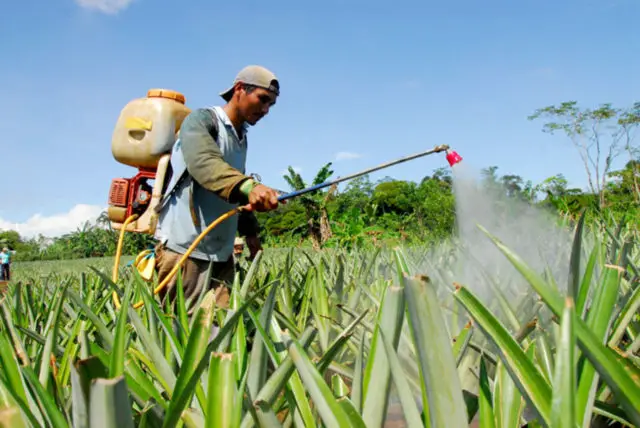The Minister of Environment and Energy (MINAE), Carlos Manuel Rodríguez, explained -in December 2019- the issue of the suspension of the permits given to the corporation ‘Corporación de Desarrollo Agrícola Del Monte, SA’ -better known as Pindeco- for the planting of pineapple in the South Zone.
According to the minister, “it was urgent to become aware of the great relevance of the environmental fragility of the pineapple cultivation project site”.
“With this resolution, we make effective the guarantee of the protection of the environment and especially of the Protected Wild Areas (ASP), given the danger of anthropic activities such as monocultures and others such as the use of agrochemicals associated with them, as these, they constitute the central element of biodiversity protection”, added Rodríguez.
Specific arguments
The pineapple operations license was granted by the National Environmental Technical Secretariat (Setena) since 2016. The act generated controversy immediately as it was a project of more than 600 hectares very close to the Térraba-Sierpe Wetland.
To justify the cancellation of the permits, Minister Rodríguez stated as main reasons:
- Scientific rigor. The studies were not complete when giving the first permit and the speed with which they were given did not allow their deep analysis.
- Natural resources. These are lands located in a basin of high environmental fragility and influence on wetlands.
- Pollution. The technical proposal did not contemplate agrochemicals of low toxicity and persistence, as required in a wetland area.
- Archaeological material. Since 2014, the area has been declared a World Heritage Site by UNESCO.
Long legal process
The legal fight against the pineapple project, called “Hacienda Doña Victoria”, started a few months after the authorization given by Setena. In May 2017, a group led by the Federation for the Conservation of the Environment (Fecon) undertook various legal actions to stop the guarantee.
As explained this morning Minister Rodriguez filed appeals before MINAE and in court. The permanence of the case in the Prosecutor’s Office paralyzed the rest of the proceedings, but once the accusing body considered that there was no merit for a criminal case, the case returned to Setena, where some of the environmentalists’ comments were rejected.
Dissatisfied with the conclusion, the group appealed the result at a higher level, that is, the Minister’s office, who took the final position to cancel the permits given by Setena. “In general terms, the project, its size and type of activity is totally inconsistent with the ecological and biological conditions of the site where it was intended to be developed”, the minister concluded.


